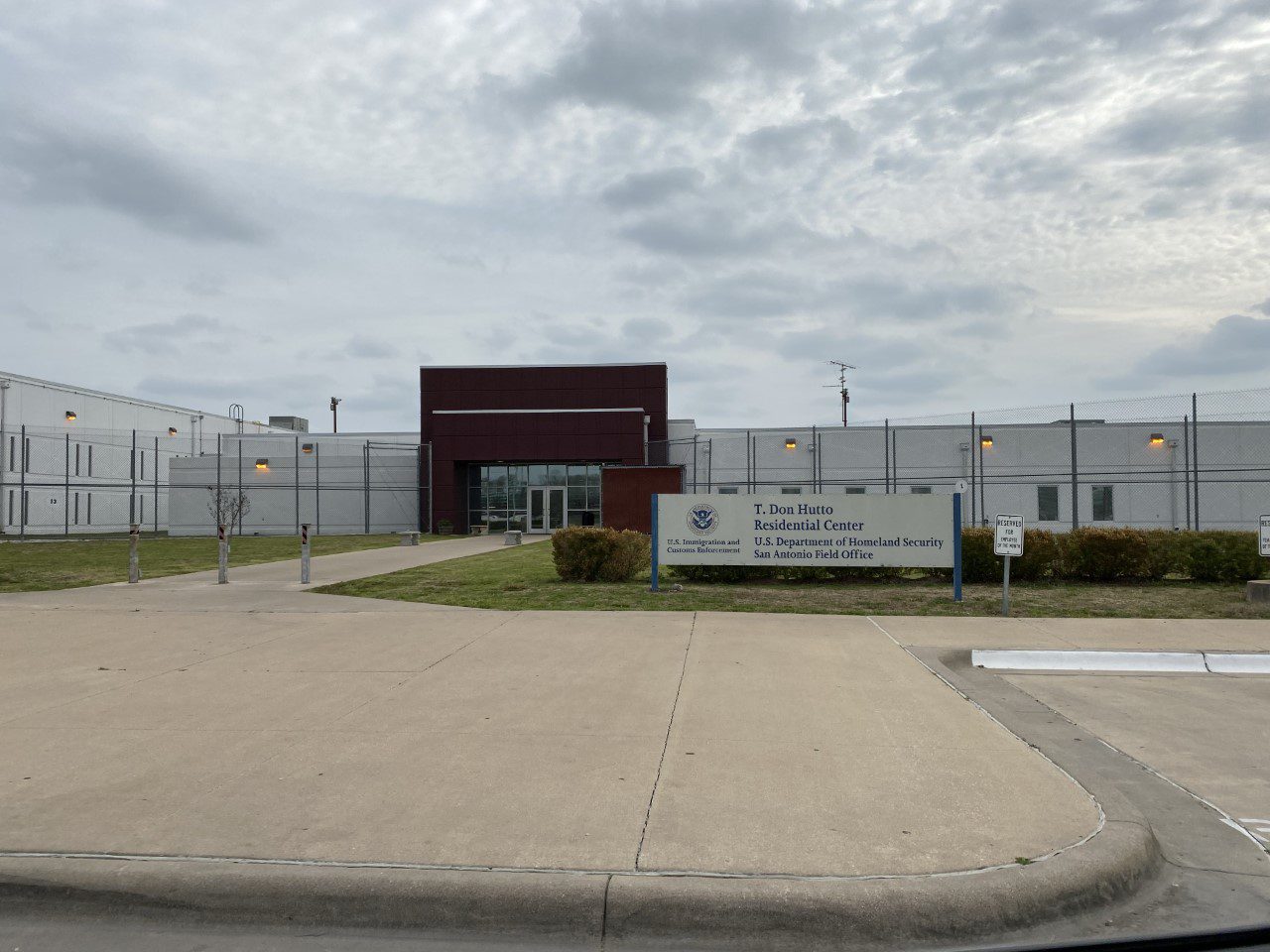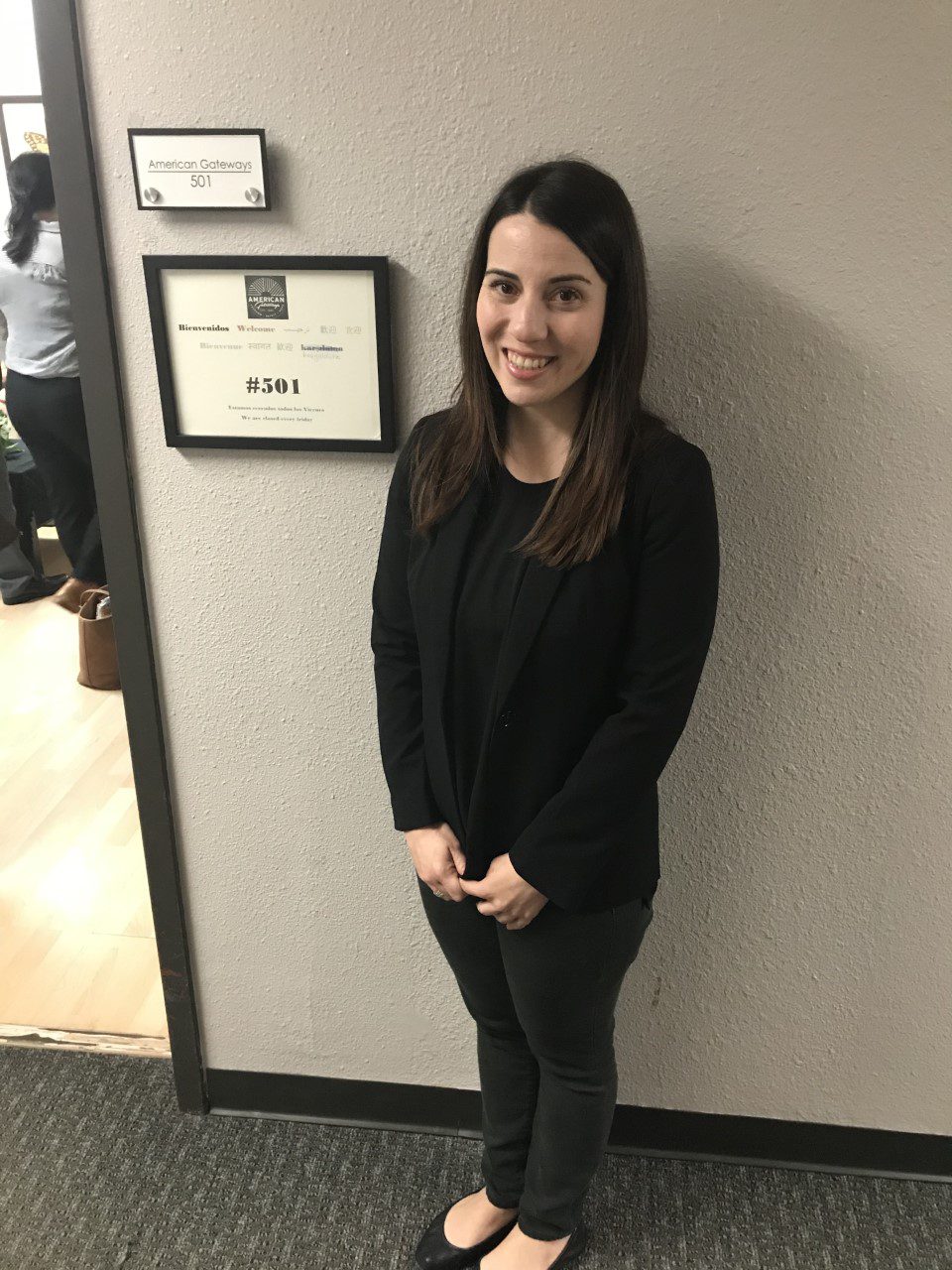Trip Report: 1L Nicole Aston on the Hutto Detention Center

Back row, from L-R: Professor Richard Boswell; Nicole Aston (1L);
Front row, from L-R: Irvin De La O (1L); Josephine Mendoza (1L); Maria Salinas Mendoza (1L)
Not pictured: Aleen Mankerian (1L); Andrew Newcomb (3L) Michelle Trejo-Saldivar (3L)
“This trip has reminded me of how resilient the human spirit is.”
Over spring break, seven UC Law SF students traveled to the T. Don Hutto Residential Center in Taylor, Texas, an immigration detention center for women awaiting decisions on their U.S. immigration status. Their role: to help detainees prepare for their “credible fear” asylum interviews and hearings —vital steps in the asylum process.

T. Don Hutto Residential Center
Students also spent time working at American Gateways in nearby Austin, a nonprofit that provides citizenship and immigration services. There, students conducted research on country conditions to support the women’s asylum claims as well as claims by others within the detained population.
This is the third year UC Law SF students have traveled to Texas under the auspices of Hastings Students for Immigrants’ Rights (HSIR)’s Detention Center Trip to provide direct services to those seeking asylum. Each year, they fundraise to cover the costs of the trip, including airfare, hotels, food, and local transportation. Professors Richard Boswell and Karen Musalo challenged faculty and staff to match their $1,000 gift, and the college community responded, raising $5,745. Alumni contributed as well, and a foundation grant brought total fundraising to more than $17,200. Unspent funds will underwrite next year’s trip.
This year, Professor Boswell joined the students (paying his own way), making it a unique learning experience for the students. “I was able to talk with them about what they were seeing and how they were dealing with it, both from a legal and an emotional perspective,” he said.
“The pleasure that I get out of it is that I know it is a very moving experience for them, and they are truly helping each other out, which doesn’t always happen in the classroom environment. They see how important it is to be working together, and it allows them to be more reflective.”
Like the Hastings to Haiti project, these trips provide students “a way to engage in real experiences, where they are using their knowledge and attaching to it the values that they have and the kinds of lawyers they want to be,” Boswell said. “It opens their eyes to a whole different way of how to be a lawyer.”

1L Nicole Aston
Nicole Aston is a 1L and former social worker. She spent five days working in Texas during the first week of March before California began sheltering in place. Here, she shares her experience at the detention center.
Q: What is the detention center like?
A: Cold. It’s far from being an inviting location for those who are detained or for visitors. Everything you do is controlled from the moment you pull into the parking lot, as there is a guard driving around patrolling the area. Getting into the detention center requires prior approval and once inside you must fill out a form, provide identification, and go through security. You cannot bring in any electronic devices (including cell phones) and you must be escorted any time that you need to move from the client interview room, including using the restroom. It is definitely not a place where you feel free.
Q: What surprised you?
A: What surprised me the most is that the Hutto Detention Center conducts their credible fear and asylum interviews over the phone. These interviews are very important, and a negative result can make it harder to seek asylum. The interviews take place in a clear plastic cubicle that is not soundproof. This means those seeking asylum are forced to share their stories of persecution and trauma with strangers (asylum officer and interpreter) over the phone while being watched and heard by detention center staff and other asylum seekers.
Q: How has the trip impacted you?
A: This trip has reminded me of how resilient the human spirit is. The women I met at Hutto have been through so much, with many reporting repeated incidents of physical and sexual assault. They have traveled long distances, with some reporting additional instances of trauma during their journey to the United States. Many also experience great psychological difficulty in being detained, especially when they have committed no crime. Yet, these women maintain their strength and continue on in pursuit of safety for themselves and their families. It was truly a privilege to work with these women.
Q: What advice would you give to students considering similar trips?
A: It’s an incredible experience and I highly recommend it. You aren’t just learning about immigration law or the system it’s operating within. You’re also learning about people—your clients. These are the types of experiences that transform us into zealous advocates and prepare us to intervene at the policy level to address the issues our clients are facing.